The power of the network of partners of iCS
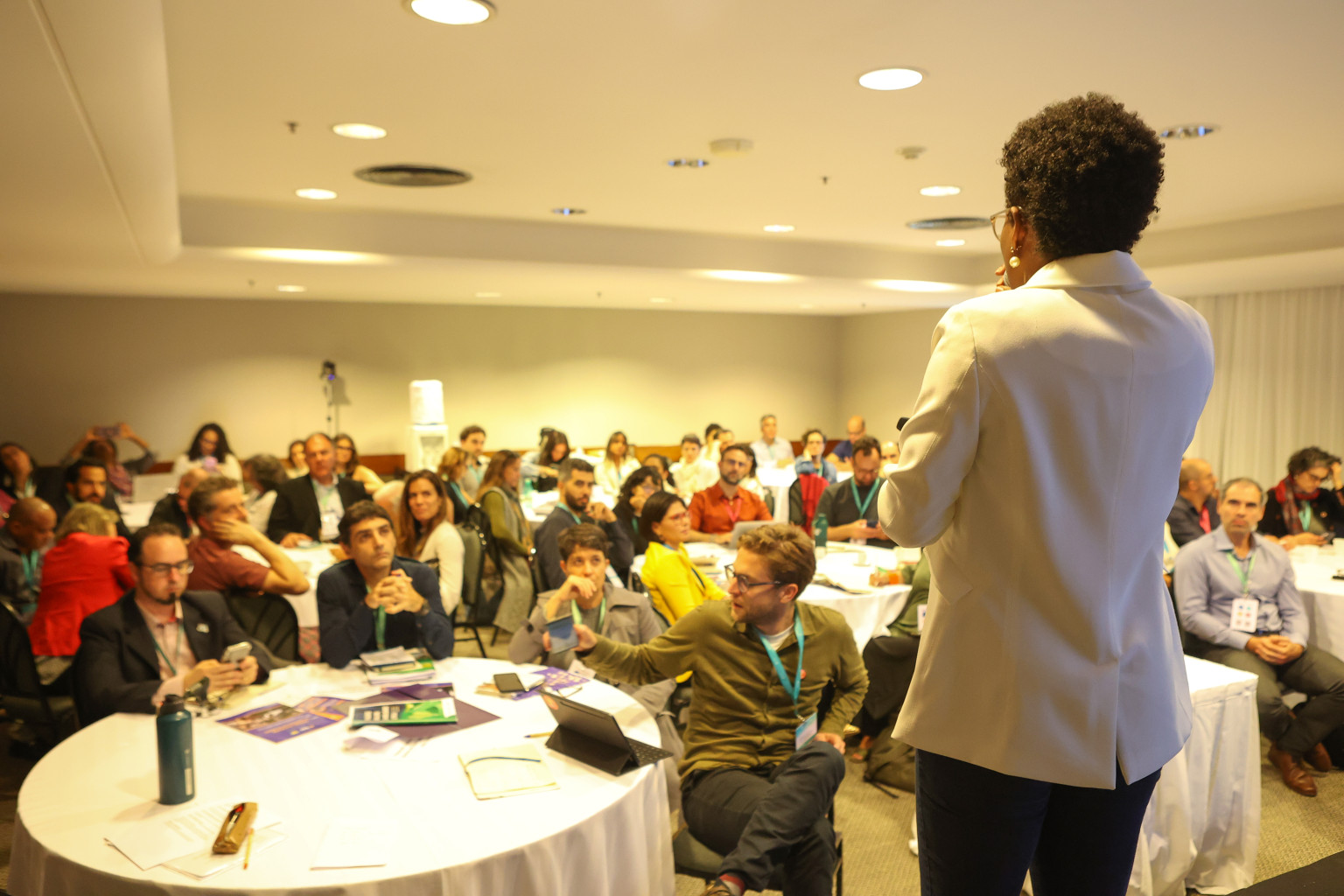
The power of the network of partners of iCS
Grantees of the Institute met to exchange ideas and hold debates about the climate agenda
The Institute for Climate and Society (iCS) held the 1st Partners Meeting on August 12 and 13, 2024, in Rio de Janeiro. During the event, representatives from 217 organizations that have developed strategic projects for the four areas of operation of the Institute had the opportunity to exchange ideas and discuss the climate field.
The diversified program included debate panels about the climate agenda, a presentation of the structure and operation of the Institute, lectures, an exhibitors’ fair, and moments of celebration. Maria Netto, the executive director, and Ana Yang, the chair of the Decision-Making Board of the Institute, opened the event by highlighting the importance of the meeting for the exchange of knowledge and ideas, especially at a time of so many opportunities for Brazil with the forthcoming G20 and COP30.
“The cost of inaction has been shown to be much higher than mitigating and adapting, impacting the entire society, especially in Latin America, as we saw recently in Rio Grande do Sul. Therefore, the moment demands action across the entire national territory, with local engagement and national policies,” said Netto.
Next, the panel Trends, Challenges and Opportunities for Brazil in the Development and Climate Agendas brought together Izabella Teixeira, the former Minister of the Environment, Jorge Arbache, the former executive secretary of the Brazil-China Investment Fund, Nilma Bentes, the founder of the Center for Studies and Defense of Black People in Pará, and Sinéia Wapichana, the coordinator of the Indigenous Council of Roraima.
Sessions by Programmatic Area
The 436 participants, including the grantees, the iCS team, organizers, speakers, board members and advisory committees, were able to choose between the sessions by the Programmatic Area of iCS (Transition in the Land Use, Food Systems and Bioeconomy; Energy, Industrial and Transport Transition; Agents of Change for Climate Action; and Climate Policy and Institutional Framework), on the first afternoon, in order to identify, within the strategy of the Institute, the possibilities for action.
Among the debated topics were the priority actions to strengthen regenerative agriculture, the production of the biodiversity, the expansion of the Brazilian renewable energy matrix, the green and just industrial transformation and expansion in Brazil, the territorial engagement and the strengthening of social participation, local mobilization and the role of grassroots organizations from the Amazon in the advancement of the climate agenda and COP30, in addition to the importance of the National Policy about Climate Change and the challenge of building a federative climate pact.
Paths and Exchanges
The morning of the second day of the event began with four thematic rooms, with each one addressing a different debate path: COP 30, the Carbon Market, Climate Finance and Adaptation. Each room had two speakers who, through challenging questions, promoted the debate about each topic. The speakers included: Larissa Basso (USP), Karen Oliveira (Sounding Board iCS), Caroline Prolo (LaClima), Viviane Romeiro (CEBDS), Rogerio Studart (CEBRI), Linda Murasawa (Committee of the National Climate Fund/MMA), Paulo Artaxo (USP), Diosmar Filho (Iyaleta Research Association), Daniela Lerario (Climate Champions Team), Hannah Balieiro (Mapinguari Institute), Ana Carolina Szklo (VCMI), Ludovino Lopes (Ludovino Lopes Advogados), Gustavo Pimentel (IPC/ERM) and Sandra Paulsen (IPEA).
Connections and the Next Steps
On the afternoon of the second day, a moment was reserved for the participation of the managers from each one of the four areas of operation of iCS: Frederico Machado (manager of the area of Transition in the Land Use, Food Systems and Bioeconomy), Américo Sampaio (manager of the area of Agents of Change for Climate Action), Victória Santos (manager of the area of Energy, Industrial and Transport Transition) and Walter de Simoni (manager of the area of Climate Policy and Institutional Framework). Each leader highlighted and commented on the systematization of the paths that had been outlined on the previous day.
Soon after, the directors Maria Netto, Alice Amorim (partnerships and communication) and Thais Ferraz (programmatic) spoke about the future of the climate agenda, highlighting the need for connections so that the initiated discussions can remain alive and have results in terms of practical actions.
iCS once again thanks each one of the partners for their presence and the important exchanges for the construction of a climate agenda that contributes to the decarbonization of the Brazilian economy and translates into opportunities for the socioeconomic development of the country.
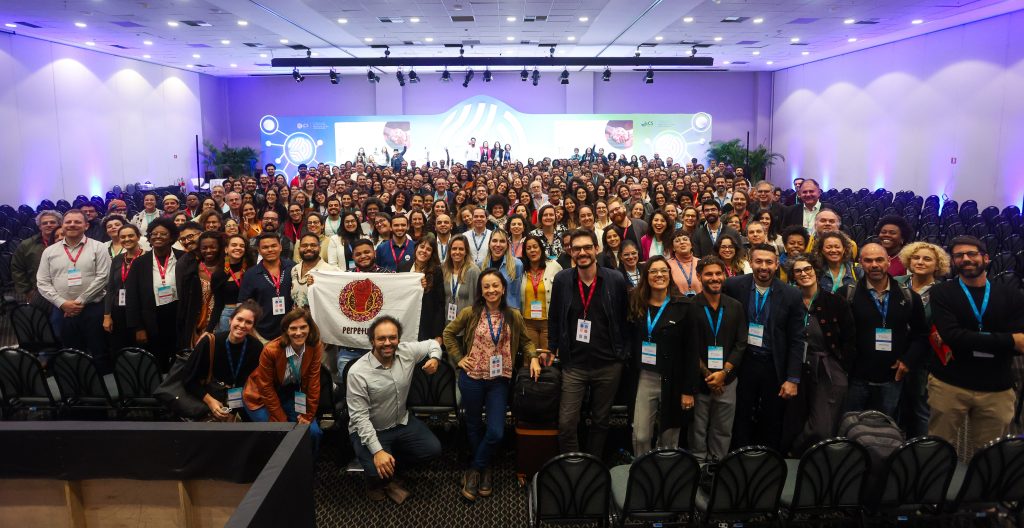
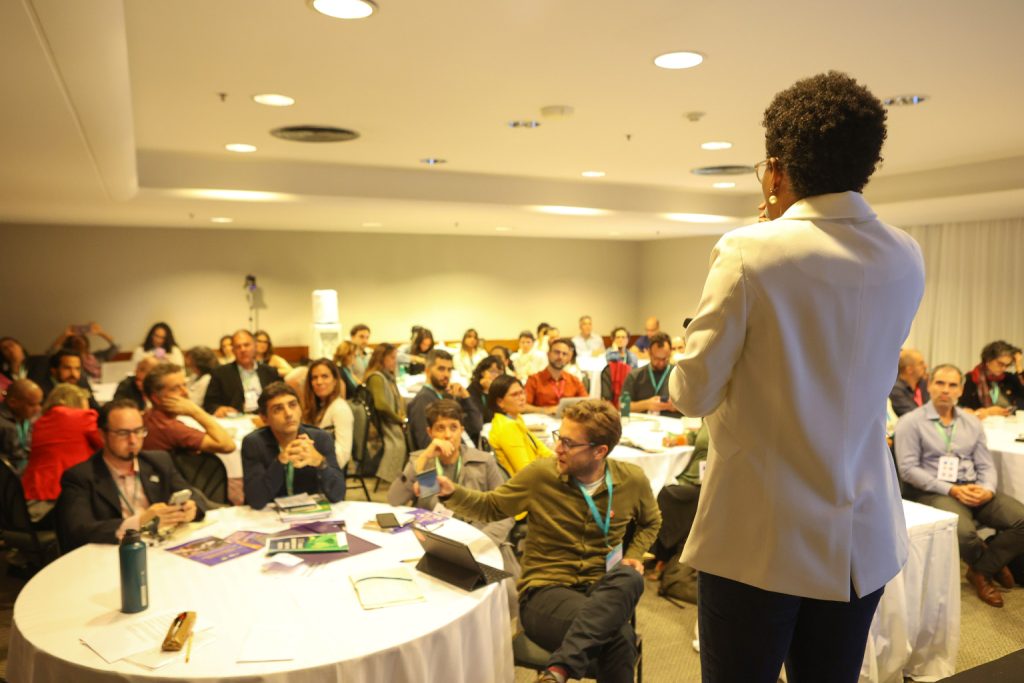
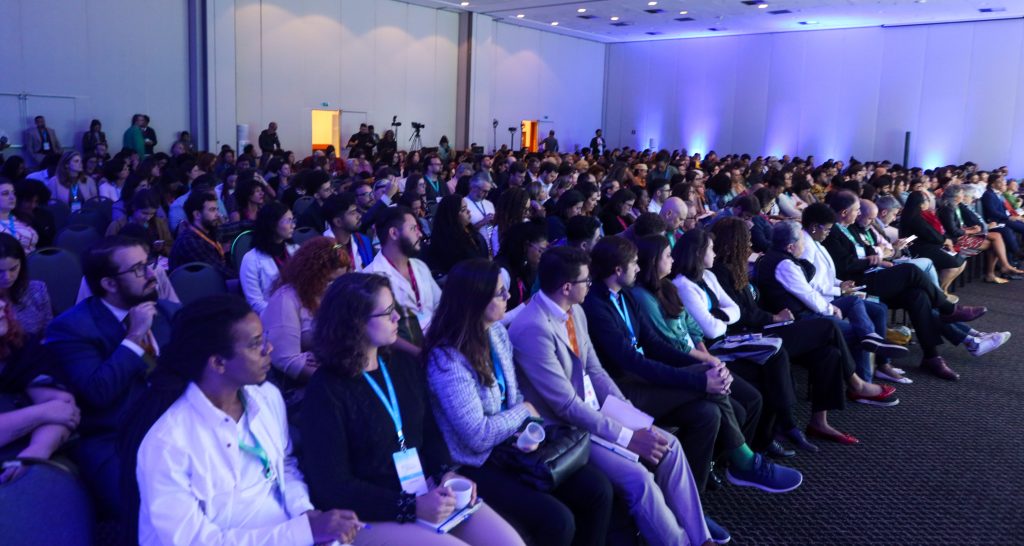
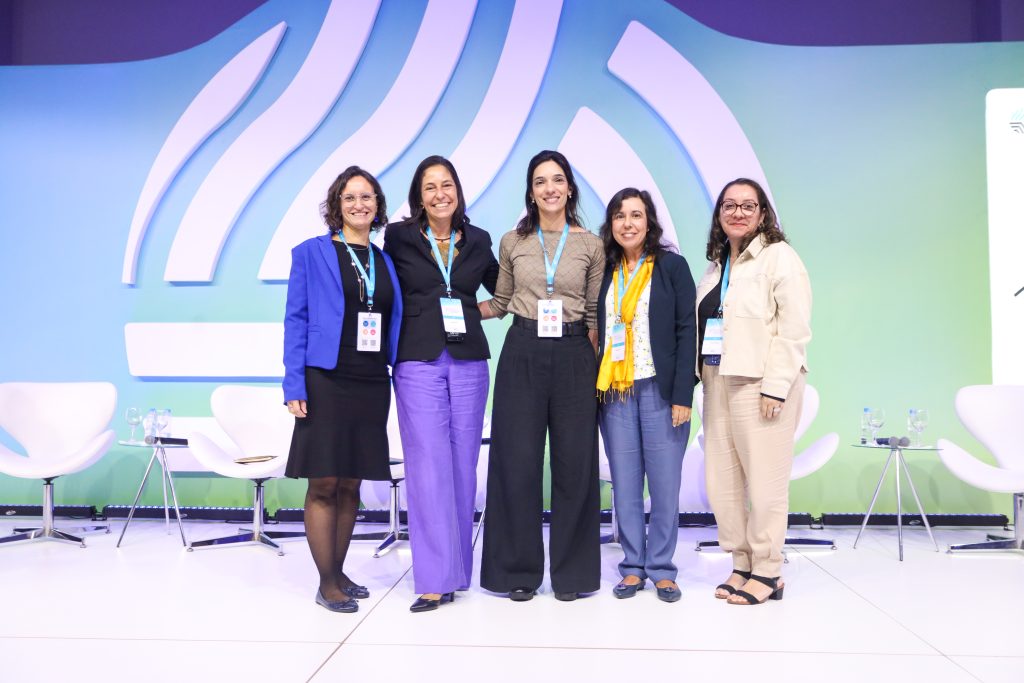
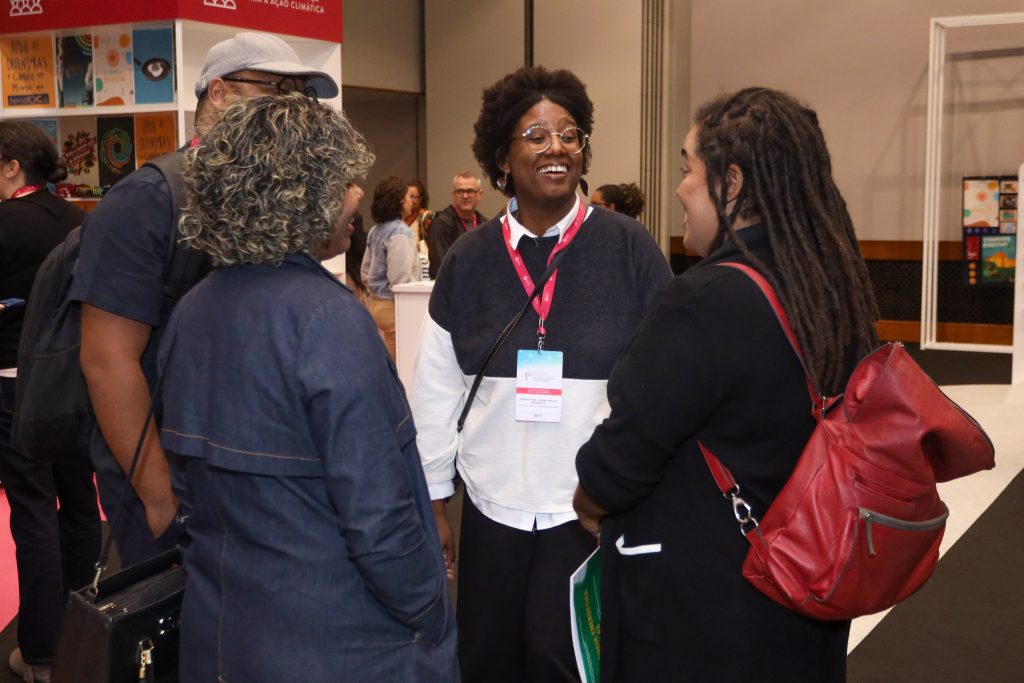
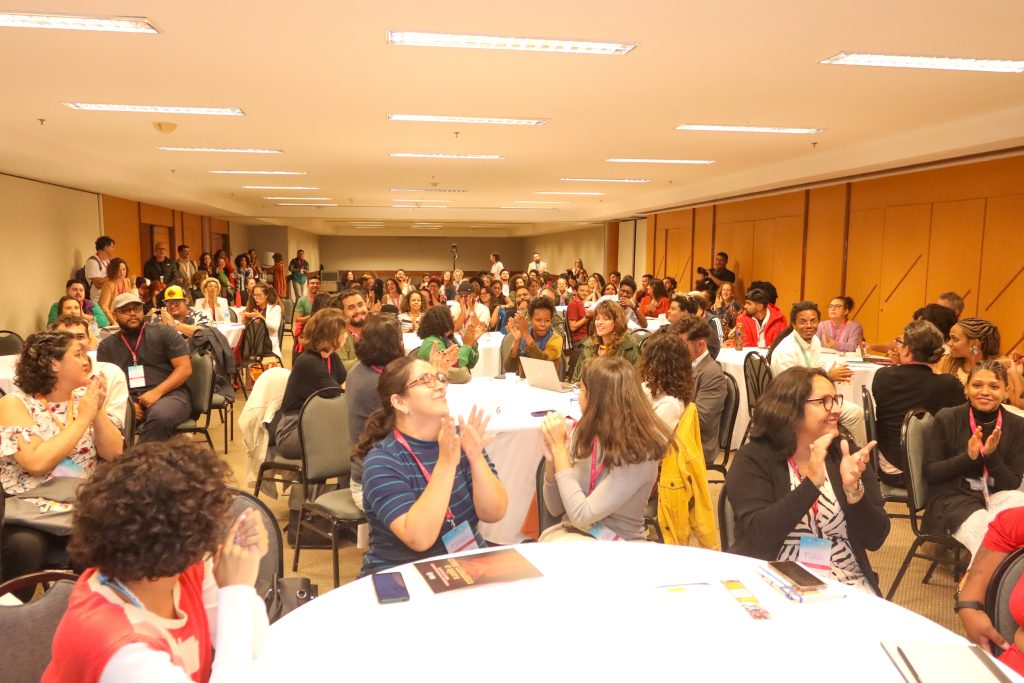
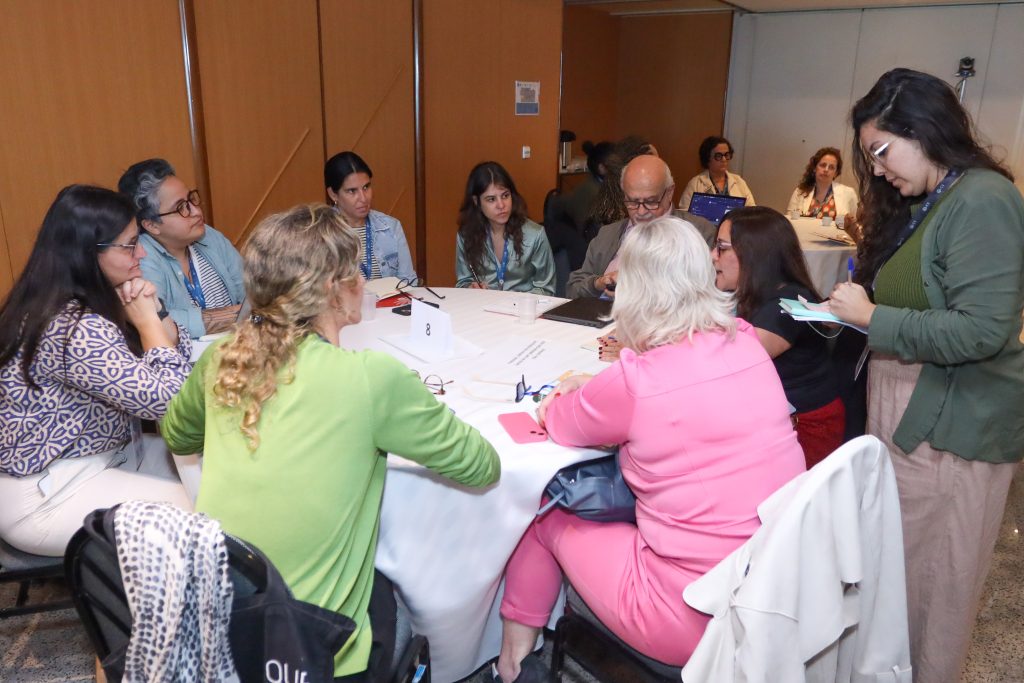
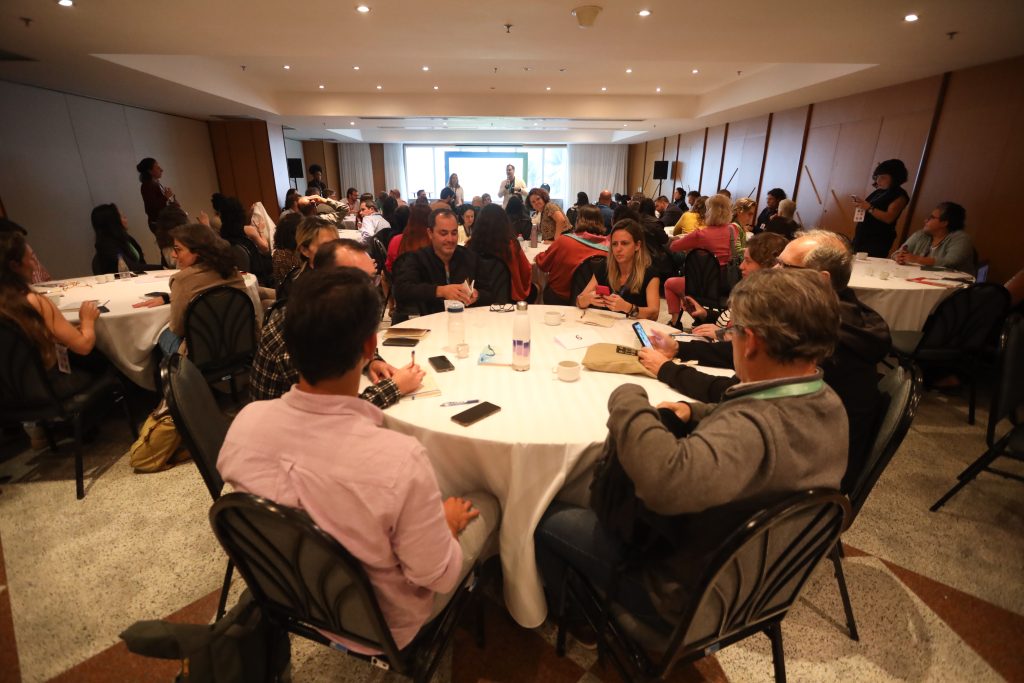
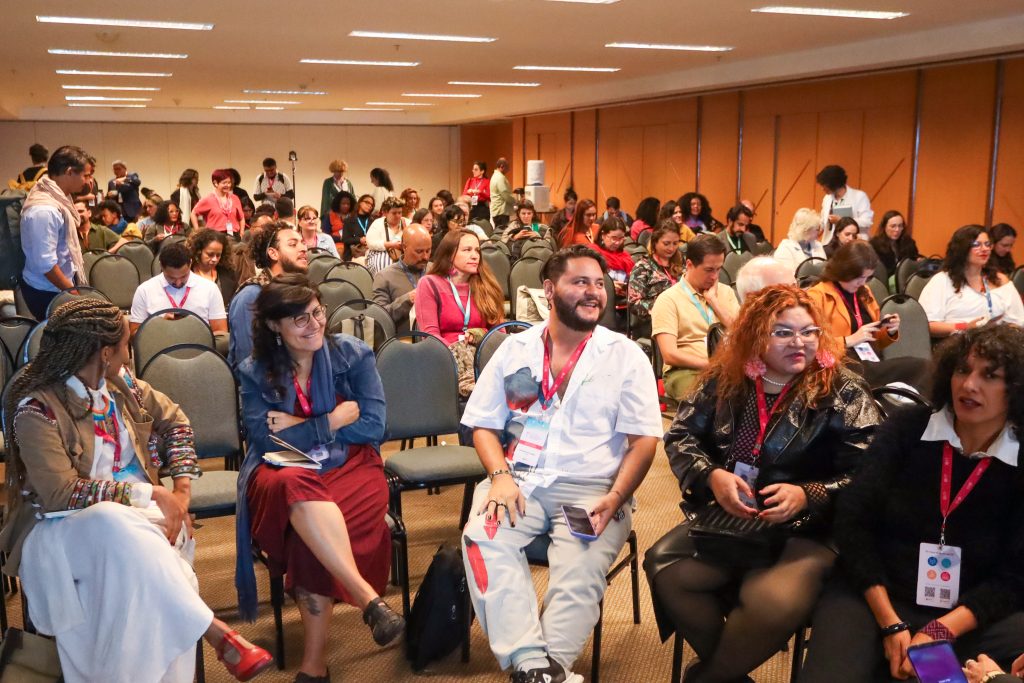
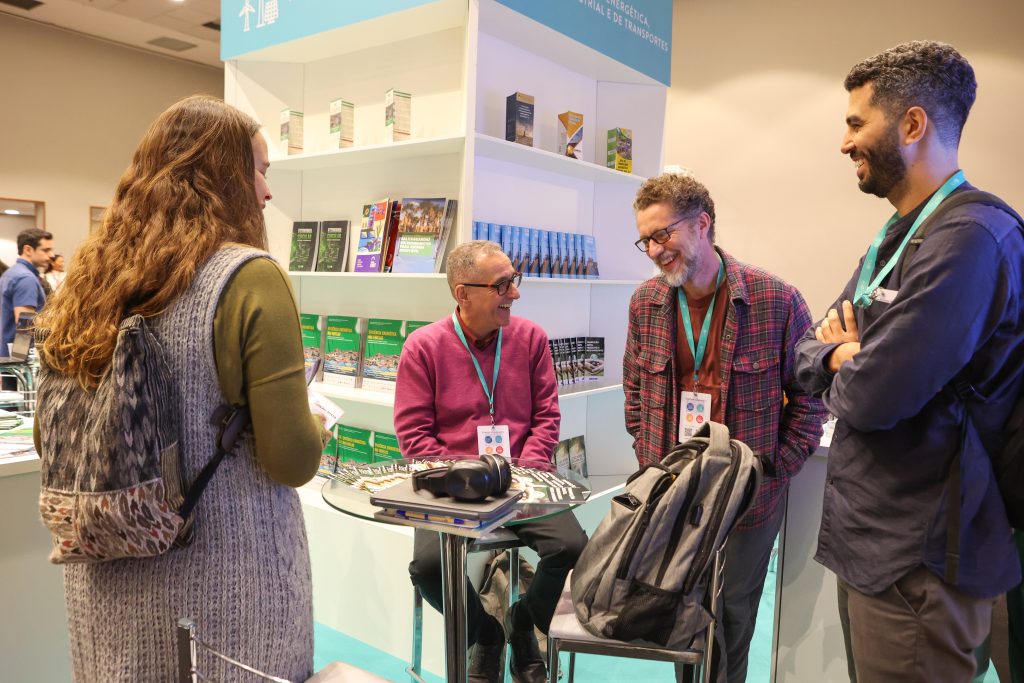
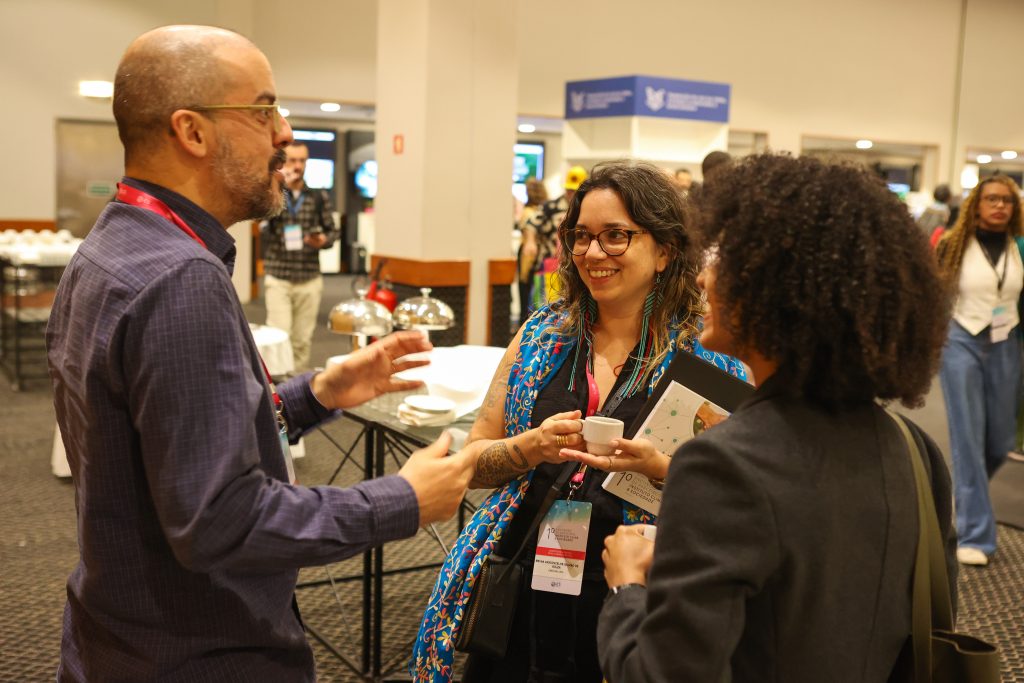
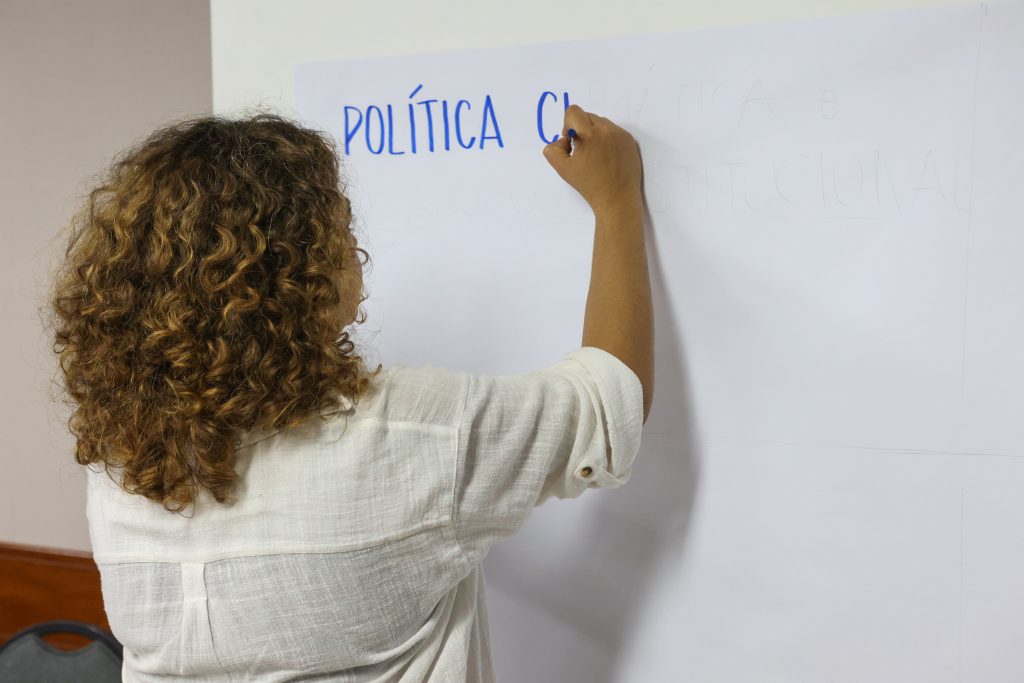
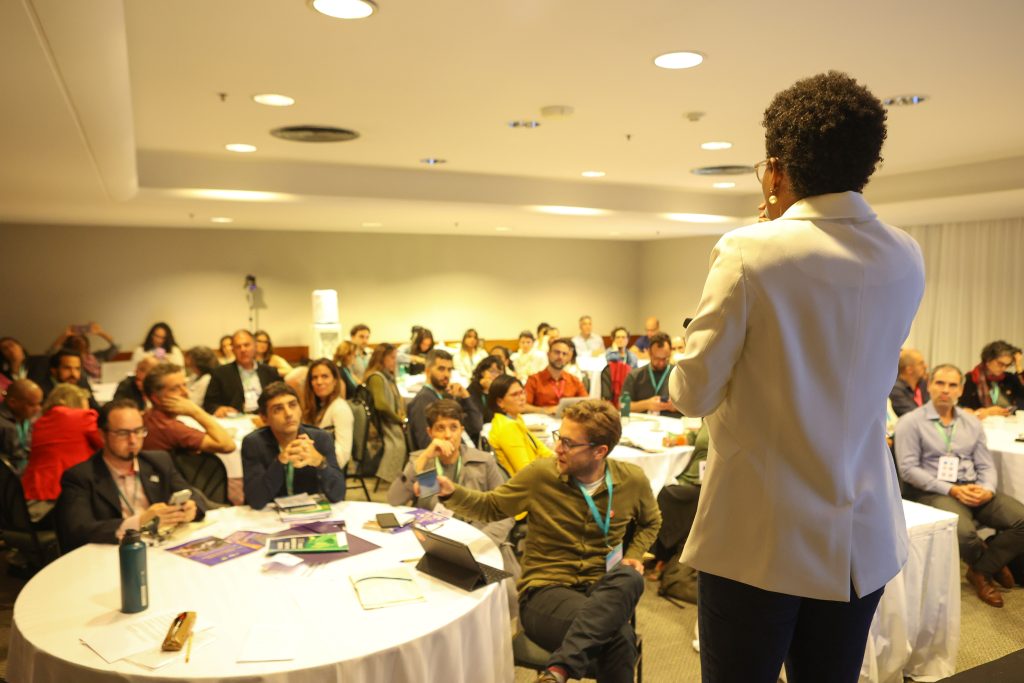
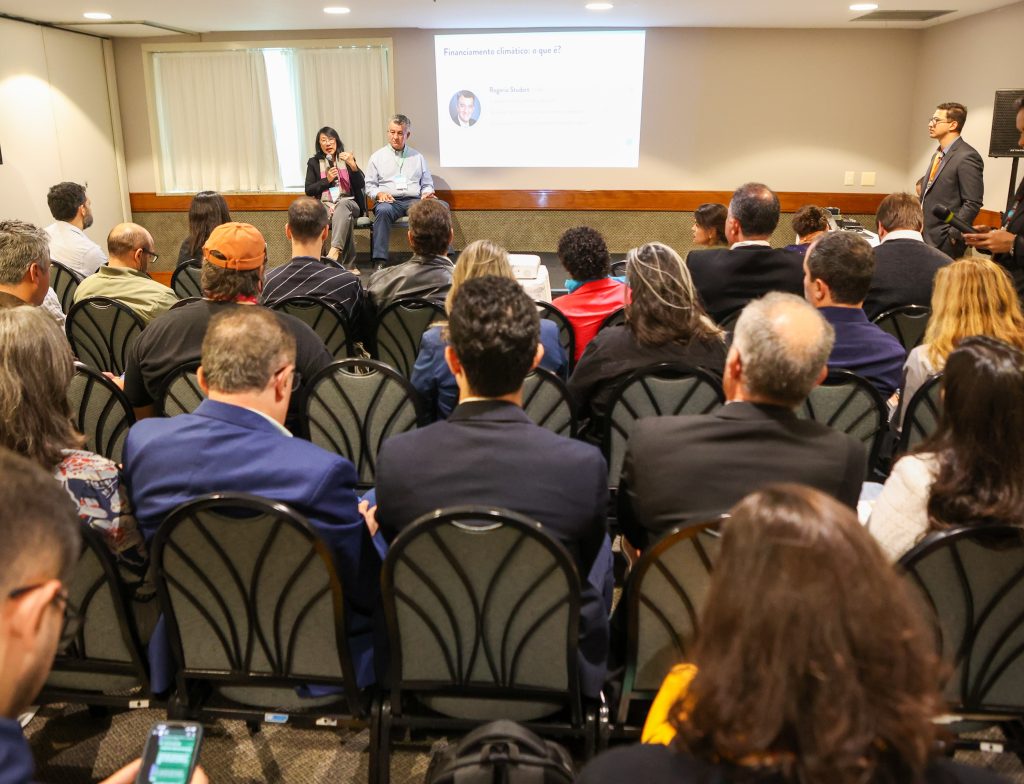
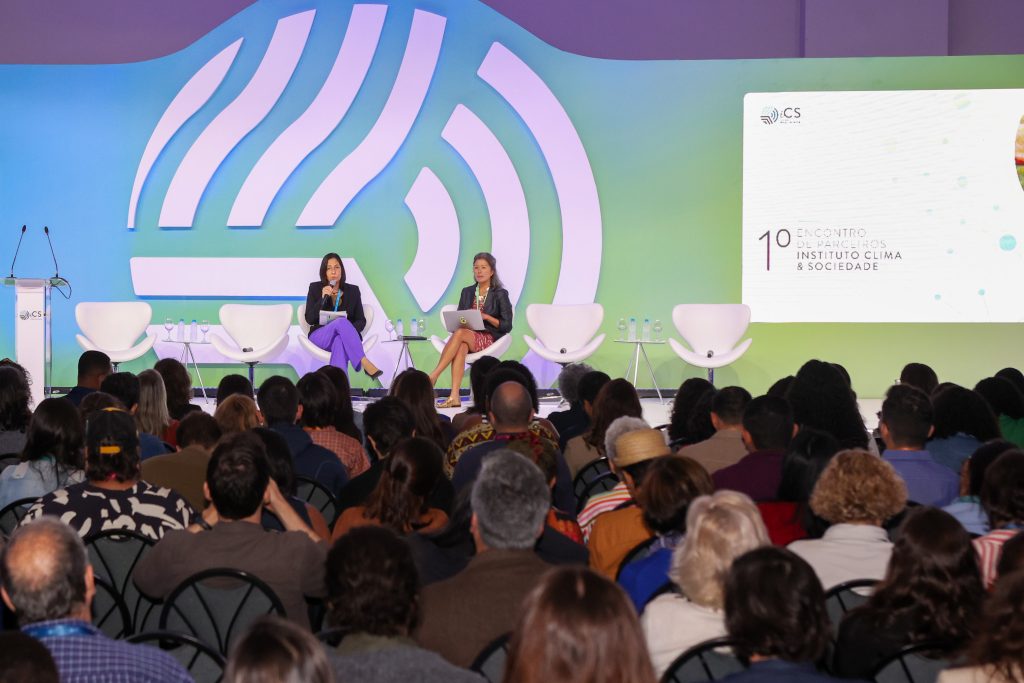
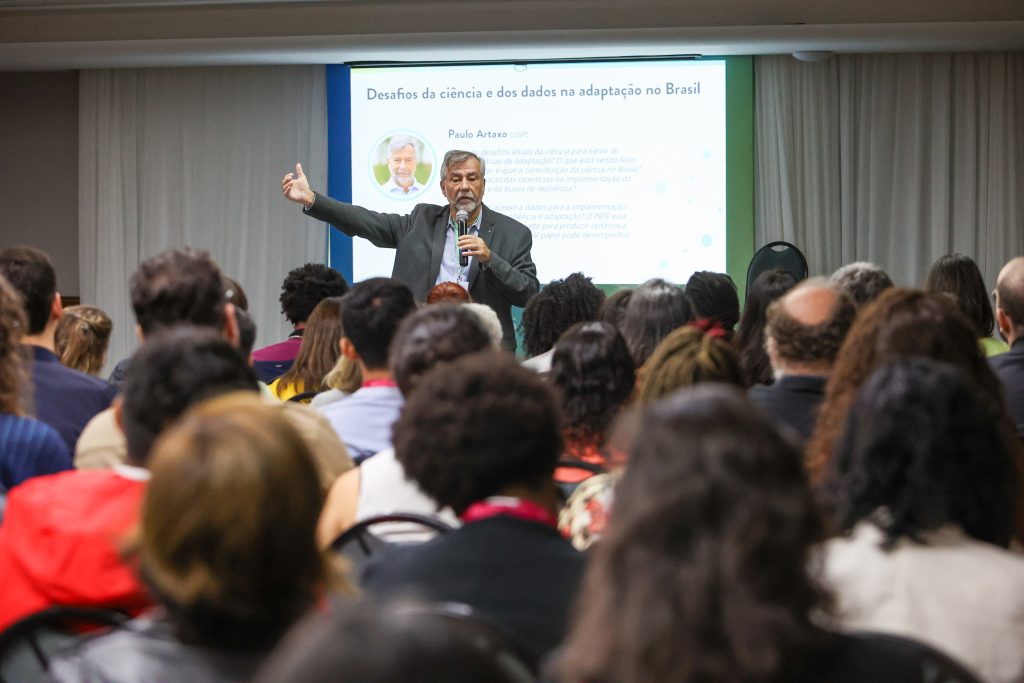
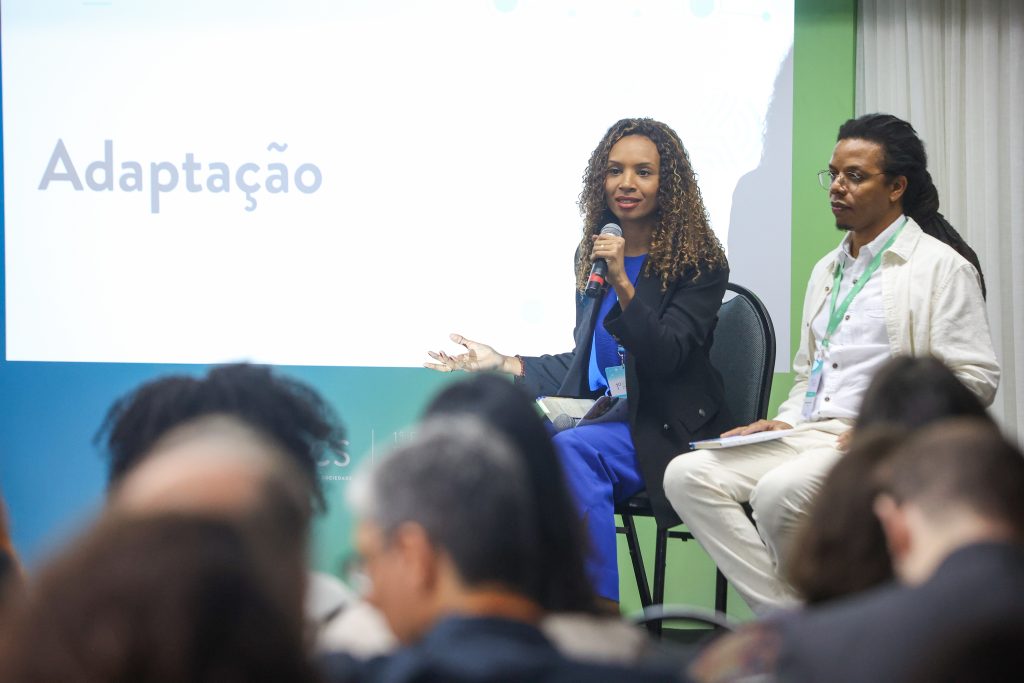
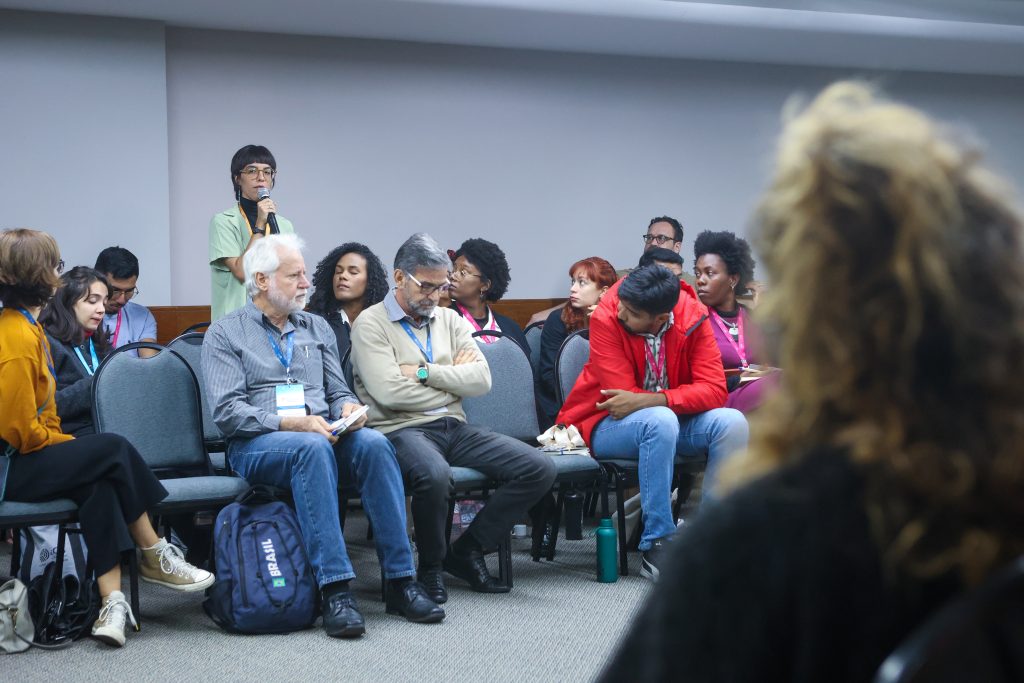
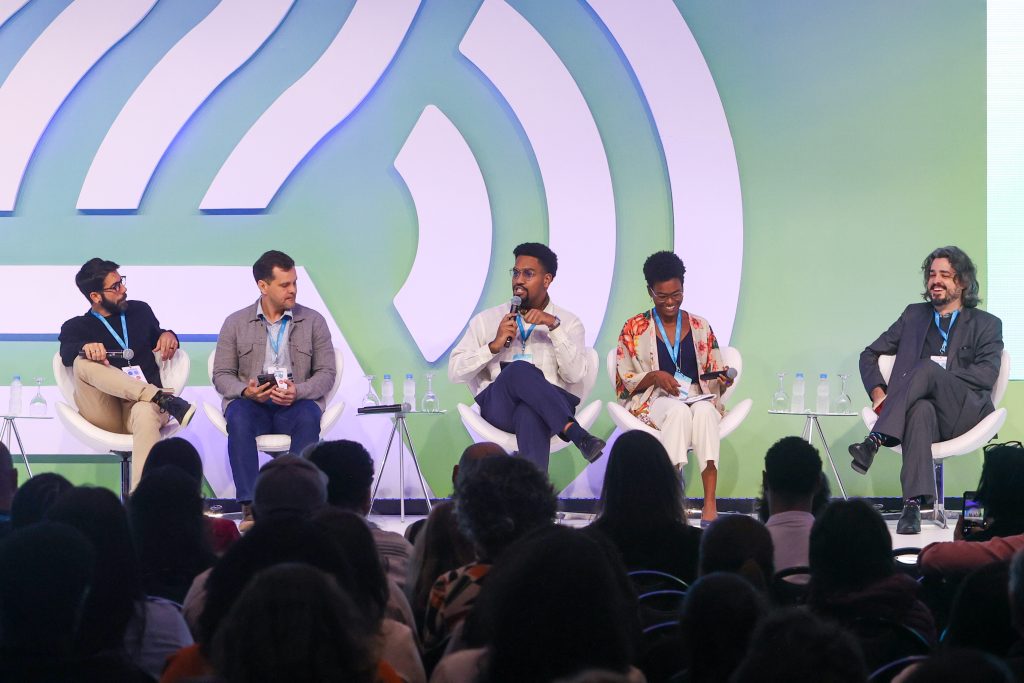
Credits: Reginaldo Teixeira
